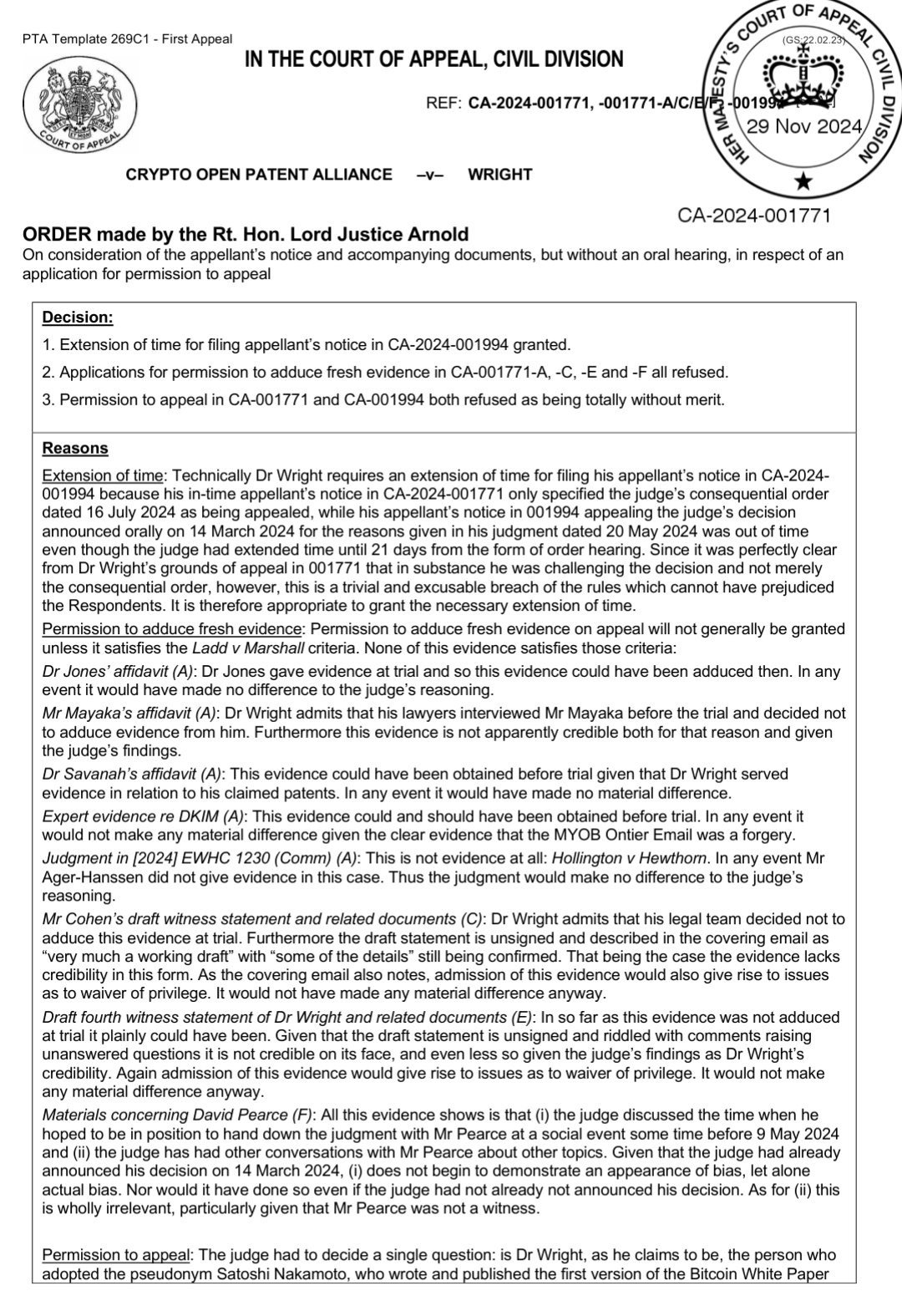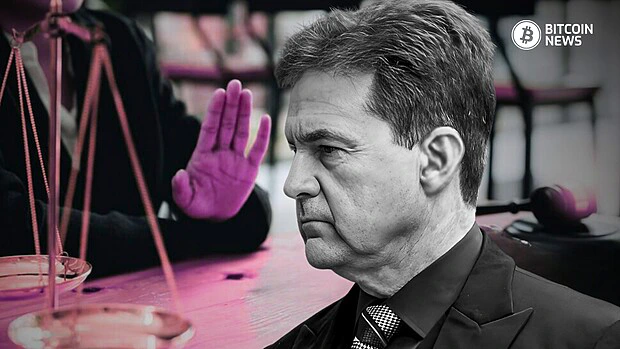Craig Steven Wright, the controversial Australian computer scientist who has long claimed to be Satoshi Nakamoto, the pseudonymous creator of Bitcoin, has faced a major legal defeat.
A UK Court of Appeal has decisively ruled against Wright, rejecting his claim to the Bitcoin title and confirming again that he is not Nakamoto.
This ruling follows years of debate and legal battles within the Bitcoin community. Craig Wright’s assertion has been met with skepticism, and this latest decision seems to bring his efforts to a conclusive end.
The UK Court of Appeal’s decision came after a prolonged legal process that examined Wright’s claim to have written the Bitcoin White Paper, created the Bitcoin system, and operated under the pseudonym Satoshi Nakamoto between 2008 and 2011.

In March 2024, Justice James Mellor of the UK High Court had already ruled against Wright, stating clearly that:
“Dr. Wright is NOT the author of the Bitcoin White Paper. Additionally, he is NOT the individual who operated under the pseudonym Satoshi Nakamoto during the 2008–2011 period.”
Lord Justice Arnold of the Court of Appeal reaffirmed this decision, stating on November 29, 2024, that Wright’s appeal had “no prospect of success whatever” and was “totally without merit.”
The court criticized Wright for presenting falsified evidence, including forged documents. The court documents noted:
“The judge had to decide a single question: is Dr Wright, as he claims to be, the person who adopted the pseudonym Satoshi Nakamoto, who wrote and published the first version of the Bitcoin White Paper […] and who created the Bitcoin system? This is a pure question of fact. The judge found that the answer to the question was no.”
Related: Craig Wright Vs COPA | Forgery Allegations and Denials
A particularly striking detail in this case was the court’s mention of “AI-generated hallucinations.”
The judges found that Wright had cited legal cases that didn’t exist, such as “Anderson v the Queen [2013] UKPC 2.” This raised suspicions that Wright may have used artificial intelligence tools, like ChatGPT, to draft parts of his appeal without verifying their accuracy.
Artificial intelligence hallucinations occur when AI models fabricate plausible-sounding but false information. The court’s finding suggested a lack of due diligence on Wright’s part, further undermining his credibility.
Craig Wright has claimed to be Satoshi Nakamoto since 2016, but his assertions have been met with widespread skepticism. His inability to provide definitive proof, such as access to early Bitcoin wallets associated with Nakamoto, has fueled doubts.
Over the years, Wright filed numerous lawsuits against his critics, including prominent figures like Hodlonaut and Ethereum co-founder Vitalik Buterin. Most of these lawsuits have ended in failure, with Wright often being ordered to pay the legal costs of his opponents.
The current case was brought against Wright by the Crypto Open Patent Alliance (COPA), a group that accused him of fabricating evidence to support his claim. COPA argued that Wright’s actions undermined the credibility of the Bitcoin community and sought legal clarity on his claims.
The latest ruling is widely seen as a turning point.
David Pearce, a UK patent attorney following the case, described the judgment as “emphatic” and said, “It was always expected that any appeal would be refused, but the decision refusing his permission to appeal is more emphatic than even I expected.”
BitMEX Research, a key observer of the case, called the decision a “definitive conclusion” and said it marked the end of Wright’s efforts to be recognized as Bitcoin’s creator.
The case has once again highlighted the enduring mystery surrounding the true identity of Satoshi Nakamoto. While Wright’s claims have been discredited, the identity of Bitcoin’s creator remains unknown.
In October 2024, an HBO documentary speculated that Canadian Bitcoin developer Peter Todd might be Nakamoto. Todd, however, denied the claim, urging people to respect the anonymity of Bitcoin’s creator. Other theories have also surfaced, but none have been proven.
For now, the enigma of Nakamoto continues to fascinate the community. Bitcoin, which has reached a value of $97,000 per coin, remains a testament to the vision of its unknown creator.
While the Court of Appeal’s decision closes this chapter of Wright’s legal battles, he still faces additional hearings. In December 2024, a court will consider whether Wright violated an injunction or is in contempt of court for continuing to pursue related cases.
If found guilty of contempt or perjury, Wright could face serious consequences, including jail time.
The UK Court of Appeal’s decision has solidified Craig Wright’s status as “Faketoshi” in the eyes of many in the Bitcoin world. Despite his claims, the court ruled unequivocally that he is not Satoshi Nakamoto, further protecting the anonymity of Bitcoin’s creator.
For the Bitcoin community, this verdict is both a victory for truth and a reminder that the origins of Bitcoin remain as mysterious as ever.










